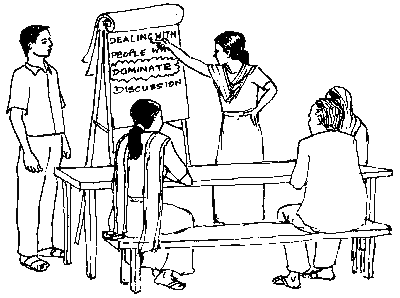Effective Christian leaders inspire their followers, encouraging them to develop as individual Christians and to put their faith into action. The most effective Christian leaders are usually those who take time to identify, support and inspire others to share in their work.
Supporting and training new leaders for all aspects and levels of church life is very important. Leaders should give time to develop leadership skills in others. They must first believe in the potential of other people and be prepared to share responsibility with them. They need to give time, commitment and prayer to train and support people in these new responsibilities. People will make mistakes. Leaders need to develop patience and forgiveness and encourage people to learn from their mistakes and to continue.
Every church has people with potential leadership skills who may lack confidence and experience. Their potential may need to be recognised and encouraged through delegating responsibility, training and opportunities for service. Sometimes cultural views about leadership may need to be challenged by looking at biblical teaching, particularly relating to women, family influence or government practices.
Discussion
- Is leadership a gift that can be developed or a calling from God?
- Read 1 Peter 5:1-4. List the characteristics of good leaders mentioned in this passage.
- Read 1 Timothy 3:1-13 where Paul talks about the qualities required in church leaders within the culture of those times. • Make a list of the qualities that Paul mentions here. • Which of these qualities should all Christians share? • Can these qualities be shown by women in today’s culture who have leadership potential?
- How are people selected for responsibilities within our church? What skills and background are needed?
- Should people with responsibilities for leading others be well-educated and literate? Do they have to be men or older people?
- Is leadership always for life? Think of situations where those in leadership may outlive their usefulness. How can we learn to assess our work and know when to let others take the work forward? How can we train others to take on a leadership role?
- Do good leaders need much training? If so, what kind of training?









